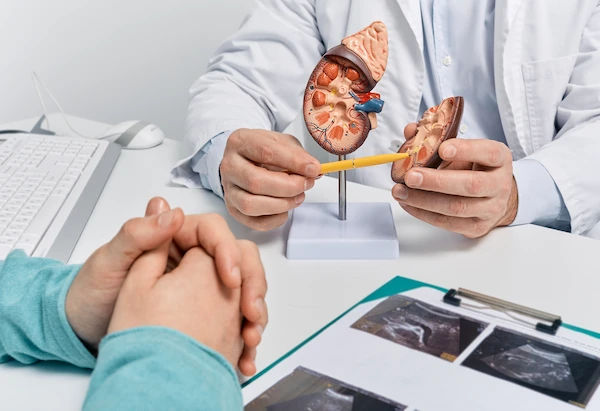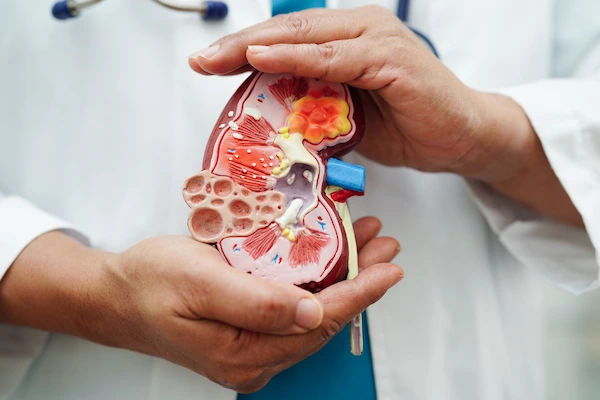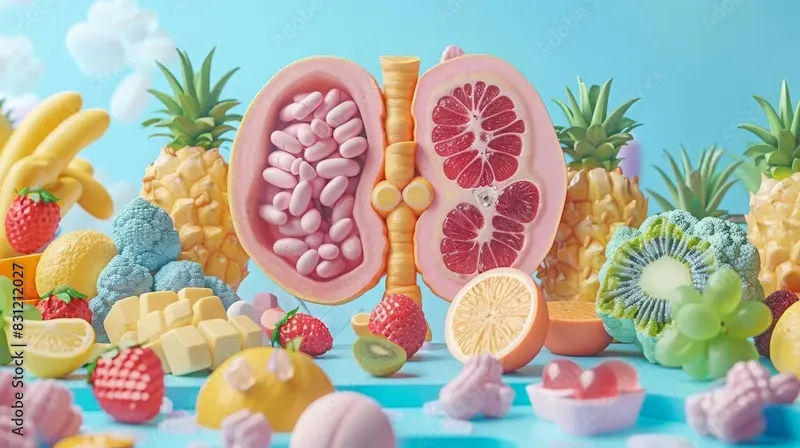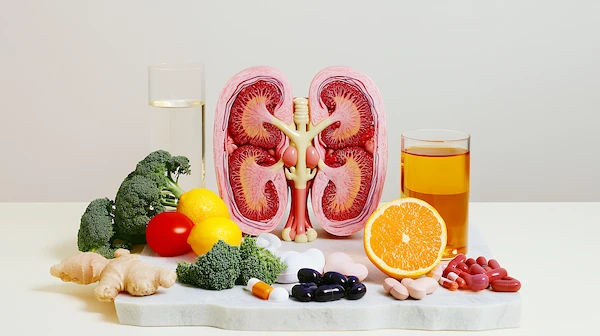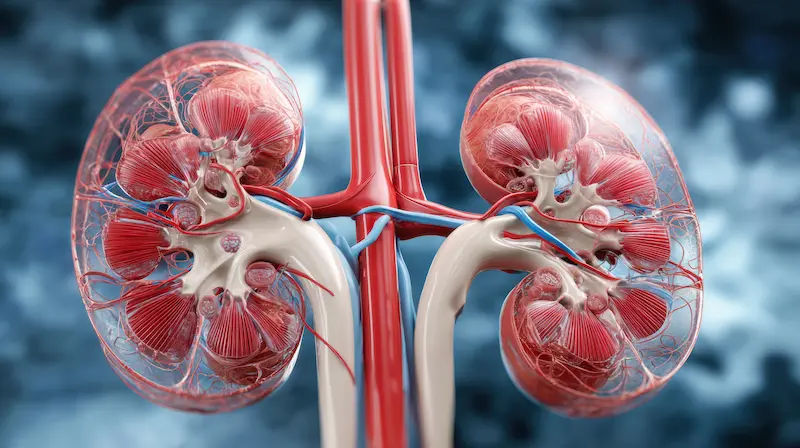Post Kidney Transplant Diet Recipes
Explore essential post kidney transplant diet recipes that promote healing, support kidney function, and boost immunity. Discover nutritious and easy-to-make meals tailored for transplant recovery.

Written by Dr. M L Ezhilarasan
Reviewed by Dr. Rohinipriyanka Pondugula MBBS
Last updated on 13th Jan, 2026
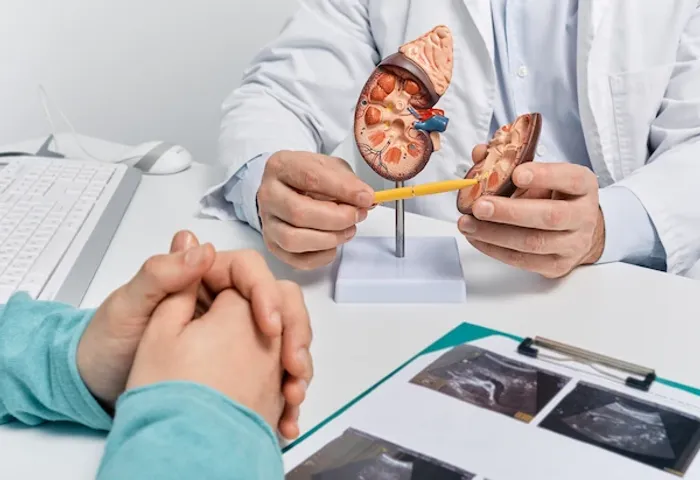
Introduction
Undergoing a kidney transplant is a life-changing event, and maintaining a healthy diet afterward is crucial for recovery and long-term well-being. A well-balanced diet helps your new kidney function properly, prevents complications, and keeps you strong. In this article, we’ll explore why diet matters after a kidney transplant, key nutrients to focus on, foods to include and avoid, simple and delicious kidney-friendly recipes and tips for meal planning.
Why Is Diet Important After a Kidney Transplant?
After a kidney transplant, your body needs time to adjust to the new organ. Medications like immunosuppressants help prevent rejection but may also affect your appetite, blood sugar, cholesterol, and blood pressure. A proper diet:
Supports healing and recovery
Helps maintain a healthy weight
Controls blood sugar and blood pressure
Strengthens immunity
Reduces side effects of medications
Your doctor or dietitian will guide you based on your specific needs, but here are some general dietary guidelines.
Key Nutrients to Focus On
Key nutrients to focus on are:
1. Protein
Why: Helps repair tissues and muscles after surgery.
Sources: Lean meats (chicken, fish), eggs, tofu, beans (in moderation).
2. Calcium & Vitamin D
Why: Transplant medications can weaken bones.
Sources: Low-fat dairy, fortified plant-based milk, leafy greens (in moderation).
3. Fibre
Why: Prevents constipation (common due to medications).
Sources: Whole grains, fruits (peeled apples, berries), vegetables.
4. Healthy Fats
Why: Supports heart health.
Sources: Olive oil, avocados, nuts (in small portions).
5. Low Sodium (Salt)
Why: Prevents high blood pressure and swelling.
Avoid: Processed foods, canned soups, pickles, and salty snacks.
Consult Top Specialists for Personalised Tips
Kidney-Friendly Recipes
Here are some simple, nutritious, and delicious recipes for post-transplant patients.
1. Breakfast: Oatmeal with Berries
Ingredients:
½ cup oats
1 cup low-fat milk or almond milk
½ cup blueberries (low potassium)
1 tsp honey (optional)
Method:
1. Cook oats in milk until soft.
2. Top with berries and a drizzle of honey.
Why it’s good: High in fibre, low in potassium, and gentle on digestion.
2. Lunch: Grilled Chicken & Veggie Wrap
Ingredients:
1 whole wheat tortilla
1 grilled chicken breast (sliced)
½ cup shredded lettuce
¼ cup grated carrots
1 tbsp low-fat yogurt dressing
Method:
1. Spread yoghurt dressing on the tortilla.
2. Add chicken and veggies, then roll tightly.
Why it’s good: Lean protein, fibre-rich, and low in sodium.
3. Dinner: Baked Fish with Herbed Quinoa
Ingredients:
1 fillet of white fish (tilapia or cod)
½ cup cooked quinoa
1 tsp olive oil
Lemon juice, parsley, salt-free seasoning
Method:
1. Season fish with herbs and lemon, then bake at 350°F for 15 mins.
2. Serve with quinoa and steamed green beans.
Why it’s good: Rich in protein, omega-3s, and kidney-friendly grains.
4. Snack: Yogurt with Chia Seeds
Ingredients:
½ cup low-fat yogurt
1 tsp chia seeds
½ tsp cinnamon
Method:
1. Mix chia seeds into yoghurt and sprinkle cinnamon.
Why it’s good: Provides calcium, fibre, and probiotics for gut health.
Tips for a Kidney-Healthy Diet
Tips for a kidney-healthy diet are:
Stay Hydrated: Drink enough water unless your doctor advises otherwise.
Monitor Portions: Eating small, frequent meals helps digestion.
Limit Processed Foods: They contain hidden salt and preservatives.
Cook at Home: This gives you control over ingredients.
Regular Check-ups: Follow up with your doctor for dietary adjustments.
When to Consult a Doctor or Dietitian?
If you experience:
Sudden weight gain/loss
Swelling in hands/feet
High blood sugar or blood pressure
Loss of appetite or nausea
Your healthcare team can help adjust your diet accordingly.
Conclusion
Eating well after a kidney transplant is key to a smooth recovery and long-term health. By focusing on nutrient-rich foods, limiting sodium and processed items, and following simple recipes, you can support your new kidney and overall well-being.
Consult Top Nephrologist
Consult Top Specialists for Personalised Tips

Dr. Kavita Parihar
Nephrologist
26 Years • MBBS, MD(MED), DNB(NEPHRO)
Ahmedabad
Apollo Hospitals Gandhinagar, Ahmedabad
(25+ Patients)

Dr. S. Anil Kumar Patro
Nephrologist
14 Years • MD, DNB
Chinagadila
Apollo Hospitals Health City Unit, Chinagadila
(25+ Patients)
Dr Ch Sashidhar
Nephrologist
20 Years • MBBS, MD General Medicine, DNB, Nephrology
Secunderabad
Apollo Hospitals Secunderabad, Secunderabad

Dr Vinay Kumar A V
Nephrologist
8 Years • MBBS, MD - General Medicine, DM - Nephrology
Bilaspur
Apollo Hospitals Seepat Road, Bilaspur

Dr Santosh Kumar
Nephrologist
13 Years • MD (Internal Medicine) DNB (Nephrology), MRCP – Nephrology (UK)
Lucknow
Apollomedics Super Speciality Hospital, Lucknow
Consult Top Nephrologist

Dr. Kavita Parihar
Nephrologist
26 Years • MBBS, MD(MED), DNB(NEPHRO)
Ahmedabad
Apollo Hospitals Gandhinagar, Ahmedabad
(25+ Patients)

Dr. S. Anil Kumar Patro
Nephrologist
14 Years • MD, DNB
Chinagadila
Apollo Hospitals Health City Unit, Chinagadila
(25+ Patients)
Dr Ch Sashidhar
Nephrologist
20 Years • MBBS, MD General Medicine, DNB, Nephrology
Secunderabad
Apollo Hospitals Secunderabad, Secunderabad

Dr Vinay Kumar A V
Nephrologist
8 Years • MBBS, MD - General Medicine, DM - Nephrology
Bilaspur
Apollo Hospitals Seepat Road, Bilaspur

Dr Santosh Kumar
Nephrologist
13 Years • MD (Internal Medicine) DNB (Nephrology), MRCP – Nephrology (UK)
Lucknow
Apollomedics Super Speciality Hospital, Lucknow
